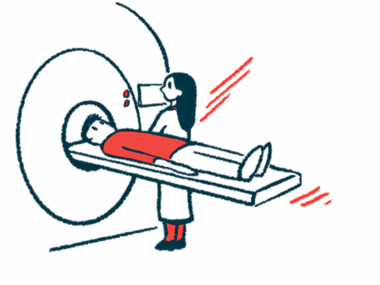Lower-dose contrast agent Vueway passes 3M doses
Milestone reflects patient preferences, Bracco says
Written by |

- Vueway is a lower-dose gadolinium MRI contrast agent.
- It diagnoses/monitors conditions like multiple sclerosis with reduced gadolinium exposure.
- Patients prefer this agent due to its lower gadolinium content and proven safety.
More than 3 million doses of Vueway (gadopiclenol), a lower-dose gadolinium contrast MRI agent used to diagnose and monitor conditions such as multiple sclerosis (MS), have been administered at more than 900 customer sites, maker Bracco Diagnostics said.
Approved by the U.S. Food and Drug Administration for use in children and adults, ages 2 years and older, Vueway provides effective contrast enhancement at half the gadolinium dose compared with other agents, Bracco said. This helps to reduce exposure to gadolinium, which can accumulate in the body, without compromising image quality.
“The availability of a … contrast agent that lowers gadolinium exposure without sacrificing imaging quality is a game-changer and a win for both patients and radiologists charged with their MR imaging care,” Todd Mulderink, MD, a radiologist at Corewell Health in Grand Rapids, Michigan, said in a press release from Bracco.
Gadolinium-based contrast agents (GBCAs), used to highlight areas of active inflammation on MRI scans, play a crucial role in diagnosing and monitoring MS. However, there are concerns that small amounts of gadolinium may remain in the body long after the scan is completed.
Vueway, administered by injection into the bloodstream, contains half the dose of gadolinium compared with other GBCAs for approved indications in the U.S.
Study validates safety, and patients prefer lower dose
Vueway’s safety was supported by a real-world post-marketing study conducted in its first year of clinical use.
Researchers evaluated nearly 900,000 administrations, and the data showed that 32 adverse events were reported, resulting in an overall adverse event rate of 1 per 27,580 Vueway exposures. All adverse events, most commonly nausea, retching, and/or vomiting, occurred in adults. No serious adverse events were reported.
Bracco also sponsored a national web-based survey of patients who received MRIs for chronic conditions or routine screening.
Survey responses showed that nearly all (92%) of patients were interested in an agent with half the gadolinium dose and would likely request it for their procedure. Likewise, 91% would consider switching MRI providers to access it, and 90% were willing to travel at least 25 miles for a lower-dose option. Among those with MS, 78% preferred a half-dose gadolinium agent for repeated scans.
“This milestone of three million doses highlights the power of combining safety, efficacy, and patient preference in a single solution,” said Noelle Heber, executive director of the radiology platform at Bracco. “We are grateful to the imaging community for their trust.”


